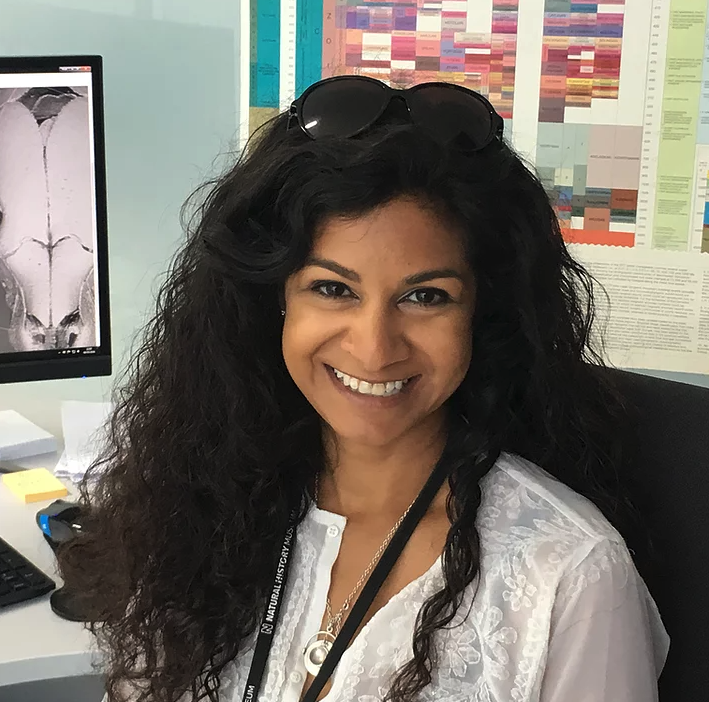Date:
 Anjali Goswami
Anjali Goswami
Honorary Professor in Paleobiology
Department of Genetics, Evolution, and Environment, University College London
Dean of Postgraduate Education and Research Leader in Life Sciences
Natural History Museum, London
From development to deep time: Reconstructing the evolution of diversity with a phenomic approach
Abstract: What processes shape organismal diversity over large time scales? Approaches to this question can focus on many different factors, from ecology and life history to environmental change and extinction. Uniting these factors in a macroevolutionary framework is typically complicated by differences in the sources, types and scale of data collected, but open access 3D datasets have transformed this field in recent years. Here, I will discuss the patterns of and influences on cranial evolution using a vast 3D phenomic dataset spanning >300 million years of evolution. While most large-scale studies of morphological evolution utilise relatively limited descriptors of morphology, surface sliding semi-landmark analysis allows for detailed quantification of complex 3D shapes, even across highly disparate taxa. We analysed morphological evolution using a dense dataset of 700-1500 landmarks and sliding semi-landmarks for over 1000 species of living and extinct limbed vertebrates. Patterns of cranial organisation are generally conserved within large clades, but clear shifts are evident across. Focusing on analyses in birds, dinosaurs, amphibians, and mammals, I will discuss differences in the relative effect sizes of developmental and ecological factors on skull shape variation and rate of evolution, as well as temporal trends in shape evolution. A unified approach to data collection allows direct comparison of disparate taxa, and demonstrates that ecology, life history, extinction events, and climate are all significant influences on cranial shape, though the magnitudes of their effects vary markedly across different vertebrate clades.
Host: Professor Stephanie Pierce

